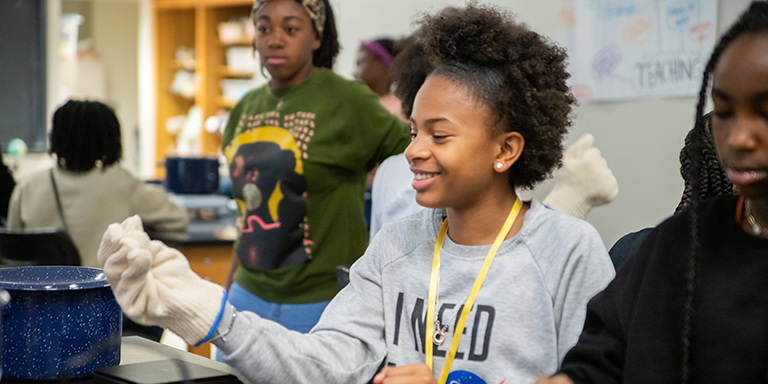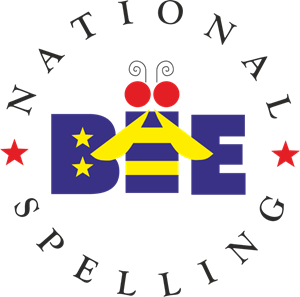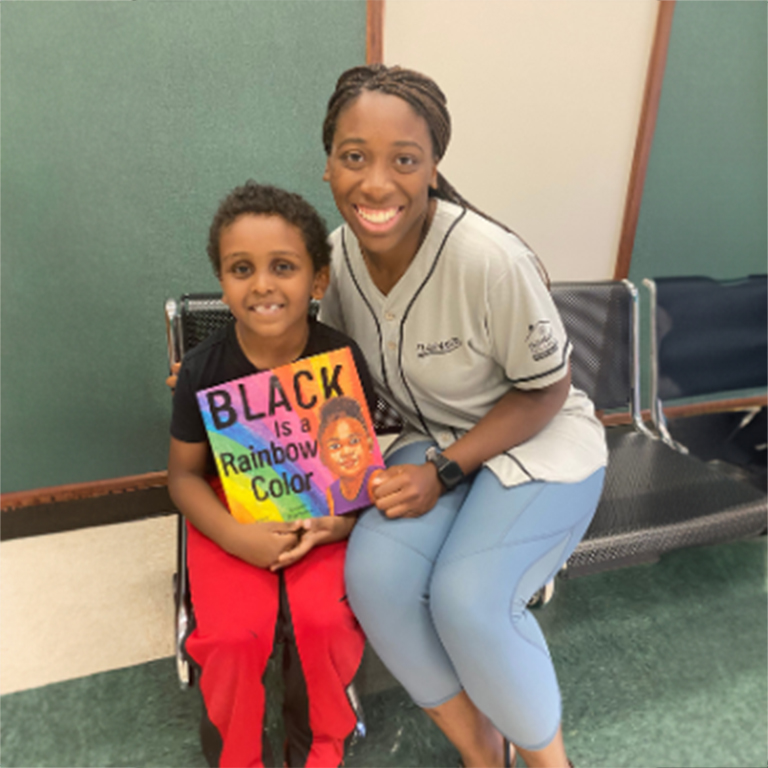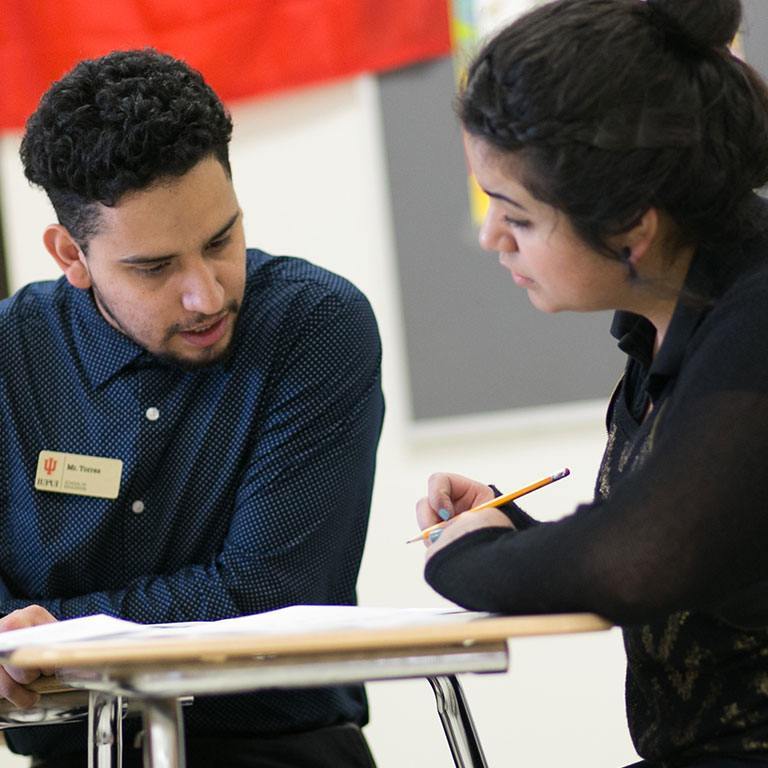Every year, we love to shine a spotlight on one of our amazing community partners. These partnerships are more than just alliances; they are the lifeblood that helps us drive change in the world of education and beyond.
We're absolutely thrilled to introduce you to our friends at The Children’s Policy and Law Initiative of Indiana. Collaborating with them, we've been able to not only witness but co-create some truly inspiring programs and events.
To learn more about our partnership, please watch the video below!
Description of the video:
My name is JauNae Hanger, I'm President and executive director of the Children's Policy and Law Initiative of Indiana. And my name is Dr. Gwen Kelley and I am Vice Board Chair for the Children's Policy and Law Initiative of Indiana. CPLI stands for addressing the criminalization of children through laws, policies and practices. What we know is that over the last several decades, many children who shouldn't be going into the juvenile justice system are going into the juvenile justice system because of needs that they have that are best addressed with community resources. CPLI stands for the Children's Policy Law Initiative of Indiana. And so as the name says, we're concerned about policy related to what happens with our children. And then we have initiatives that address those policies once they're made. We've actually involved the school IUPUI campus in many different ways. We actually have an internship program, so we involve students from various programs like social work, education, law. We also have worked with faculty on issues of concern. Faculty actually provide important expertise and resources to the community on issues where we want to see change. Specifically, five years ago we started the Positive School Discipline Institute. We know that harsh, punitive responses to children's behaviors in schools sets them up for school failure. And there's been over the last three decades because of zero tolerance, there's been an over use of school discipline and especially out of school suspension or in school suspension. We've trained 54 schools across the state, school teams, I should say. Our first thought was to reach out to the School of Education. Because we know training educators is not all we need to do. We really need to reach out to pre-service. And a lot of educators really don't understand how their decisions in the moment can have lifelong consequences for children. We know that children who experience suspension are much more greater at risk of school failure and also interaction with the juvenile justice system. And we know that suspension is basically a disparate practice. We're very concerned about equity. The first person we thought about was to reach out to Dean Jackson and see if IUPUI would partner with us to develop what that would look like. And we're able to share programming around culture responsive trauma informed practices. When CPLI started, Dr. Ruskiba, who was at the School of Ed at IU Bloomington, was a part of our first board, and I worked at the equity project at that time. And so that connection with IU has been there from the very beginning. And many of the faculty members have served as either presenters, consultants, advisors for the activities that we do with the children's policy law initiative. But IUPUI has remained a central partner in all that we do because of the quality of the staff and their concern about trauma informed practices in a culture responsive way. The Equity Center, we started out working with them quite a bit at the beginning and still in partnership with them, were very instrumental in some of having presentations that were highly effective, received high accommodations from those who came. Because of their knowledge and their focus on practices that makes sense. We thought it was extremely important to pull together a curriculum. We reached out to Jim Sporleder, he was the Principal in an alternative education high school in Walla Walla, Washington. He is now training all across the country. We took that national model and we engaged, Gwen Kelly is one of the experts that we engaged, but other trainers in the state to apply a racially culturally responsive lens. So what we did is designed a curriculum that basically would train a school team led by the principal. Five to seven, it's interdisciplinary roles, so you have your administrators, your teachers, your school discipline staff, and if you have law enforcement, law enforcement being trained in basically the fundamentals, the core research that says we need to use positive school discipline practices. We were able to hold a one day conference in August last year where, you know, the School of Education, Dean Jackson and her faculty, were instrumental and from the ground up in developing that program out. As busy as faculty members are with what they're working on with their classes and all that, they have taken the time to be a part of the committees that have helped put together many of the things that we're working on. So we are really appreciative of IUPUI and the team that Dr. Jackson put together to help us with planning the different events that we're working on. The School of ed can continue to partner with us with their thought processes and the way that they see the outlook on the educational landscape. And so that partnership at that level that the Urban League offered all of us, we hope that that will continue. The one thing we don't focus on a lot, we get a lot of attention from the grassroots level because people understand the work we're doing and we partner with a lot of folks, but we don't do a lot of media. And it's just really nice to have this opportunity to focus on our work and to focus on this partnership. Because I think it's really important work in our community. Any opportunities we get with our partners to share, we really appreciate. I'm very happy to see the IUPUI, soon to be IU Indy, has offered their expertise to work with the Children's Policy and Law Initiative. Everything we do is through a cultural responsive lens. And I just appreciate the leadership of the Department that sees the importance of equity and offering all the resources they have to make that happen within the city. That's one thing that I'm very appreciative about, about the School of Ed.







